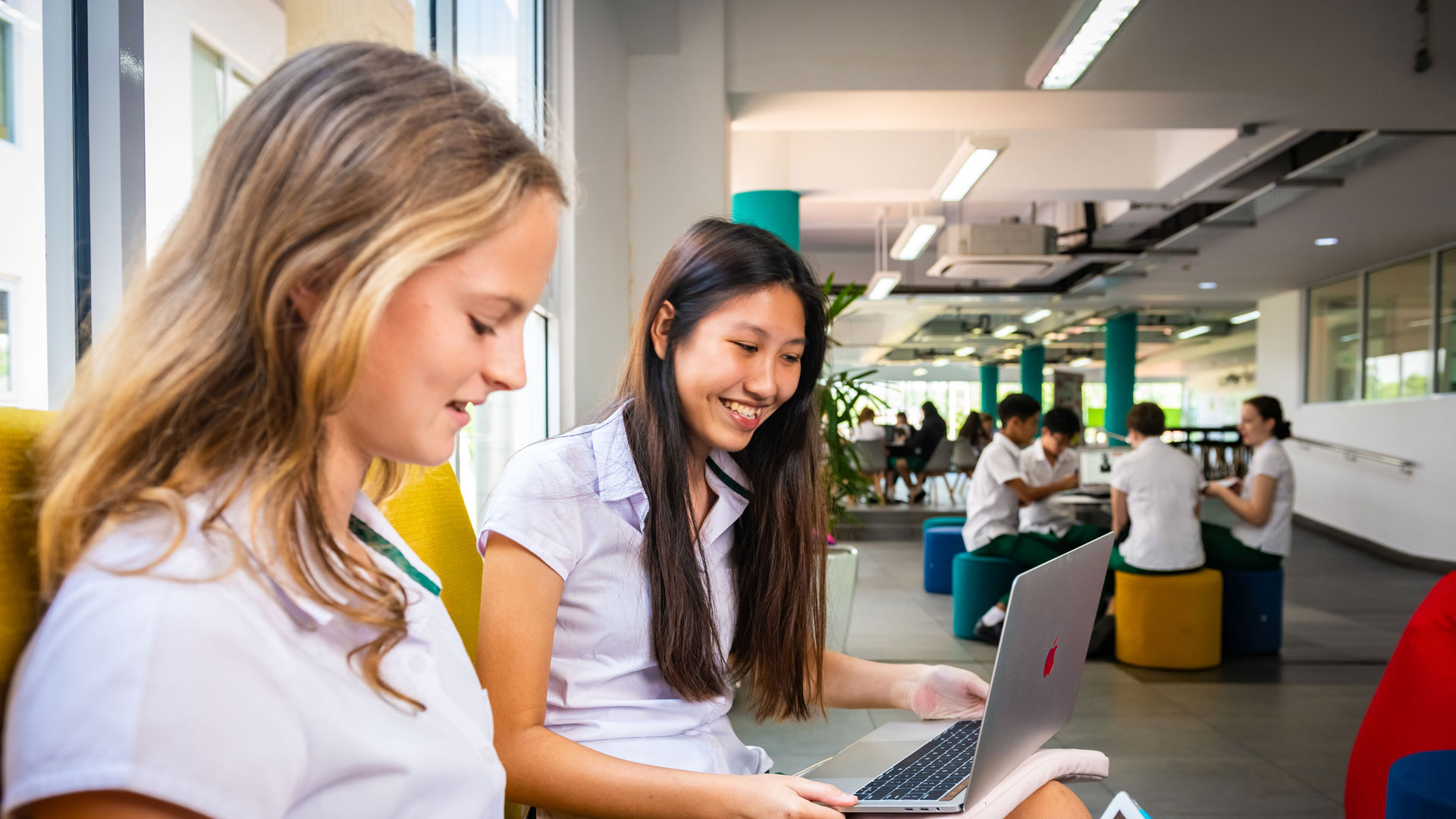
Our broad and balanced curriculum is designed to stimulate your child’s capacity to learn whilst providing the opportunity to develop higher-level thinking skills including creativity, problem solving and highly effective communication. At Key Stage 3 and 4, we offer the following subjects:
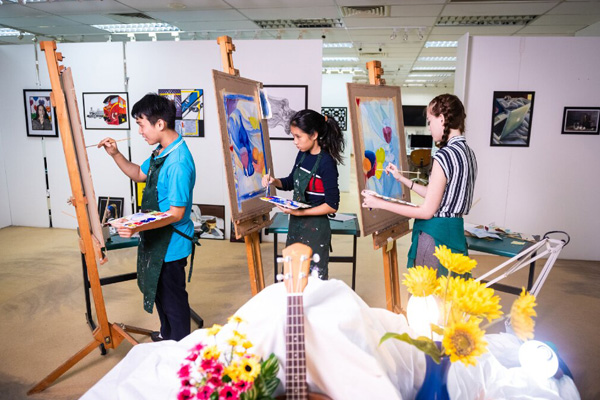
Art & Design is a discipline that demands an engagement with the visual, visceral, intellectual and spiritual dimensions of subjectivity.
When your child is studying this subject they are given the opportunity to develop a range of attitudes, attributes and skills that are essential for personal growth, happiness and professional success.
An enquiry and problem based methodology is used to empower individuality and promote creativity. All lessons aim to develop curiosity, open mindedness and critical reflection to accelerate learning and inspire students to engage with visual culture for the pleasure of making personal and collective discoveries. With our focus on attitudes to learning and transferable skills, Art & Design lessons develop that rare combination of imaginative speculation, rigorous research and problem solving as well as independent and collaborative thinking.
The (I)GCSE in Art and Design is primarily a practical course with most lessons concerned with the production of the student’s own artwork. The (I)GCSE subject criteria for Art and Design requires not only the development of practical artistic skills and abilities but it also encourages your child to explore and understand art and its various contexts, social, historical and cultural. Successful students will be able to demonstrate an understanding of past and contemporary art and design practice and be able to produce a personal response that embraces a range of ideas, concepts, media and processes. The course embraces the belief that the study of art and the exploration of imagination and creativity form an essential part of a broad and balanced education. Students are both practitioners and critics and are encouraged to develop an ability to plan, utilise time effectively and work independently under the guidance of their teacher.
Studying Art provides a sound foundation for success in a range of professions requiring higher order thinking including architecture, science, engineering, medicine, law and business.
The skills learnt during the GCSE course form a strong foundation to the subject at the AS/A-level and students without GCSE tend to struggle and attain lower AS/A-level grades due to underdeveloped artistic skills.
Read more about Art at Alice Smith School on our KLASS Blog or view the guide to our 2019 end of year show.
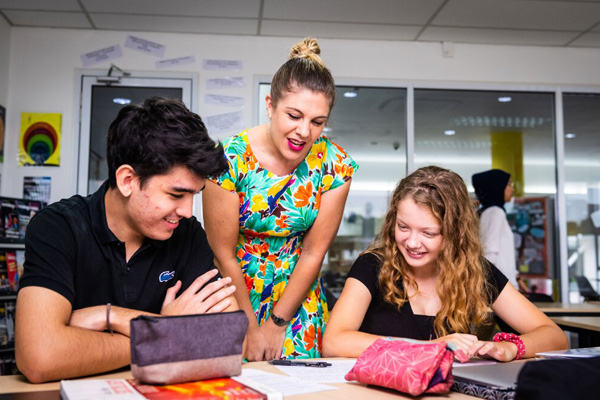
Business lessons use a blend of individual, paired and group work, together with data response articles through news, video and textbook formats to provoke discussion and understanding of the Business and Economic world we live in. Your child will develop analytical skills to develop arguments about a certain topic, such as the benefits of Economic Growth. Evaluation skills are honed by way of counter arguments for topics, such as the negative impact of Economic Growth.
The (I)GCSE Business Studies syllabus develops students’ understanding of business activity in the public and private sectors, and the importance of innovation and change. Students find out how the major types of business organisation are established, financed and run, and how their activities are regulated. Factors influencing business decision-making are also considered, as are the essential values of cooperation and interdependence.
Students not only study business concepts and techniques but also enhance related skills such as numeracy and enquiry. The following are the key topics covered in the course:
This section introduces the underlying ideas and concepts of business and includes the purpose and nature of business activity and how businesses can be classified. Enterprise and entrepreneurs, and why some businesses grow while others remain small are further important issues. How business size can be measured, types of business organisation, business objectives and stakeholder objectives are the concluding topics.
The focus is the functional area of human resources and includes the importance and methods of motivating a workforce. How businesses are organised and managed and the methods of recruitment, selection and training of employees are also considered. Finally, the section covers the importance and methods of effective internal and external communication.
This section includes the role of marketing, the distinctions between niche and mass markets and the techniques of market segmentation. The methods and importance of market research are covered. The central role of the marketing mix, i.e. the four Ps, is made clear. Marketing strategies to influence consumer decisions at home and in new foreign markets are the final topics in this section.
The focus is the functional area of production and includes the meaning and methods of production and how productivity can be increased. The different costs of production and break-even analysis are covered. The section concludes with the importance and methods of achieving quality in the production process and location decisions of businesses.
This finance and accounting section covers the need for and sources of business finance, cash-flow forecasting and working capital. Simple income statements are covered as well as statements of financial position and the analysis of accounts including why and how accounts are used.
This section focuses on different external influences on business activity and how these impact on a business. It includes government influences on economic, environmental and ethical issues and how they impact on the functional areas of businesses. In addition, the international economy including globalisation and its effects on businesses and governments, multinational businesses and exchange rates are important issues. Legal constraints are an external influence to be considered but these influences are covered in the relevant functional areas above, as well as in this last section.
The course enables your child to develop knowledge and interest in the world of business that exists around them. The course will require them to solve problems and investigate businesses from a range of different perspectives. They will be subject to certain exam questions that will require them to articulate business principles through long responses. A reasonable grounding in Mathematics will be useful for some of the financial elements of the course. Keen English language skills will also be beneficial in communicating their understanding.
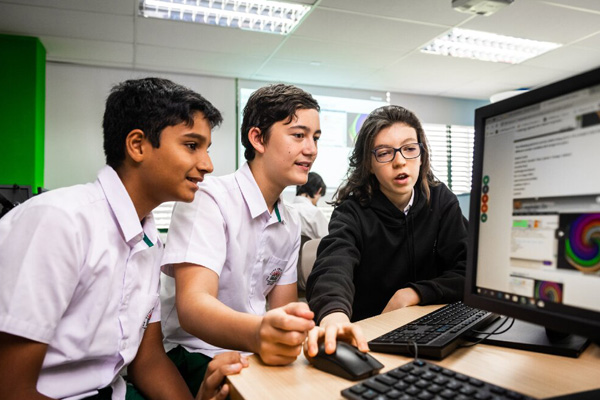
Computer technology continues to advance rapidly and the way technology is consumed has also changed at a fast pace over the recent years. The growth in the use of computers, mobile devices and web applications has exploded, resulting in new challenges for employers and employees.
Your child will gain an understanding of the fundamental concepts of computer science, including abstraction, decomposition, logic, algorithms and data representation. They will think creatively, innovatively, analytically, logically and critically to understand the components that make up digital systems, and how they communicate with one another and with other systems. They will also develop an understanding of the impact of digital technology and cyber security to the individual and to society.
| Knowledge and Understanding |
|
| Problem-solving and Realisation |
|
| Communication |
|
| Good Programming Practice |
|
Computing at (I)GCSE has two written exams. Together they contribute to 80% of the overall grade. The content for this assessment will be taken from across the course and will include a range of questions, including short and extended questions. All questions are compulsory.
The non-exam assessment assesses the ability to use the knowledge and skills gained through the course to solve a practical programming problem. Your child will follow a systematic approach to problem solving and will be assessed over 20 hours of work, which makes up the final 20% of the assessment.
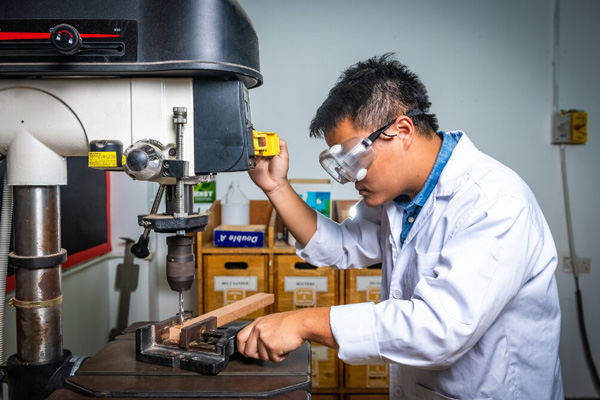
The Design Technology department is housed in a purpose-built facility, which is exceptionally well equipped and resourced, catering for the teaching of Systems and Control, Metals, Timbers, Textiles and the broader subject umbrella of Product Design. The department has four fully UK qualified specialist teachers and a technician, each with experience in related industry practice. Close partnership with the Science Faculty allows for greater links through STEM (Science, Technology, Engineering, Mathematics) based activities, an area we fully embrace.
Studies centre around the philosophy of design and manufacture, both in Industrial and Product Design including the iterative design process, practical skill development and CAD/CAM. In Key Stages 4 and 5 students work to a real need, client and brief and are encouraged to find these links externally of the school. The products that are generated should be able to exist in the market place as viable, functional commercial products.
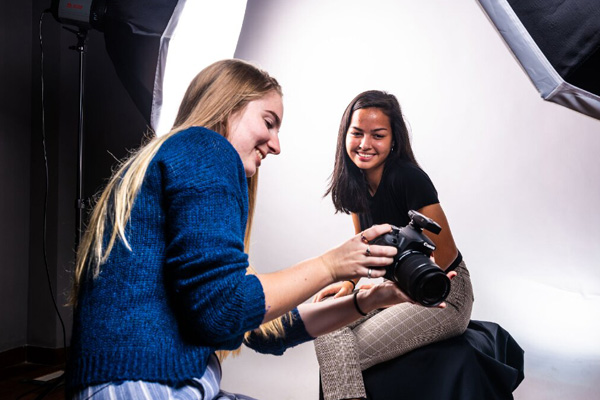
The (I)GCSE in Art and Design: Photography - Lens and Light-based Media is primarily a practical course with most lessons concerned with the production of the student’s own photography.
Digital photography is becoming a widely used art form and an exciting technological development in progressive art departments. The (I)GCSE subject criteria for Art & Design requires not only the development of practical artistic skills and abilities but it also encourages students to explore and understand the important role of photography in art and its various contexts, social, historical and cultural. Successful students should be able to demonstrate an understanding of past and contemporary photographic practice and be able to produce a personal response that embraces a range of ideas, concepts, media and processes. The course focus will be on the use and developments in technology within the field of digital photography, although students may explore other aspects of the photographic process, camera skills, selection, image enhancement and manipulation etc.
Students are both practitioners and critics and are encouraged to develop an ability to plan, utilise time effectively and work independently under the guidance of their teacher. The course is a Digital Photography course meaning they will work exclusively with photographic media. Students of Photography - Lens and Light-based Media could also opt for Art and Design as they would complement each other.
Students will find that the development of visual perception, aesthetics, computer skills, critical thinking and problem solving skills will enrich and complement other subjects. They may well form the basis of a fulfilling life long creative enrichment.

Modern Drama teaching is a holistic process and champions the need for students to develop strong communication, interpersonal and presentation skills.
The dramatic process requires your child to think creatively; form and express opinions, while offering them a chance to develop leadership and group management skills.
Your child will study Drama in mixed ability tutor groups from Years 7 to 9. The Drama Department teaches a broad spectrum of methodologies through a topic based curriculum. These topics are separated into Cultural, Issue/PSHE based and Historical themes. For the most part, students engage in Improvisation - devising original pieces of work in small, mixed groups in response to a core stimulus or starting point. At regular intervals, they will also have the opportunity to study published plays, including aspects of Shakespeare.
Your child may choose to take (I)GCSE Drama at Key Stage 4 (Years 10 and 11).
Through practical and theoretical study, the Cambridge (I)GCSE Drama syllabus encourages them to understand and enjoy drama by:
As well as following the core curriculum for Drama, the Drama department also offers extra opportunities to extend the able and provide greater breadth to the students’ experiences of theatre.
We organise trips to the theatre, both locally and abroad; provide performing and technical theatre experience with our large scale school productions; attend annual SEASAC arts festivals; have close ties with local performing arts academies and have very close ties with the internationally acclaimed British theatre company “Frantic Assembly” who hold a week long residency at the school each year.
Read about our Masterclass in Stage Make Up blog here or follow the Twitter feed here.
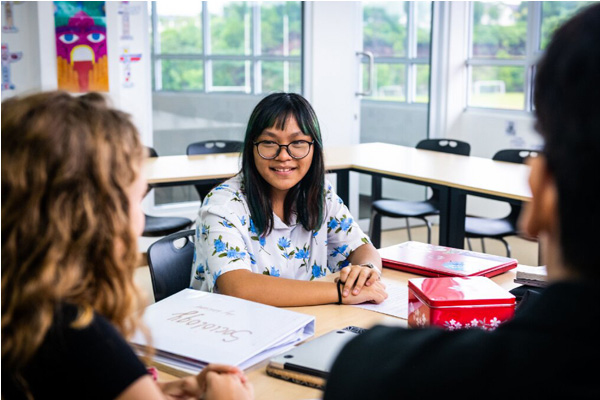
In English, your child is encouraged to challenge their perceptions of the world, to confidently express their thoughts, to debate and wrestle with ideas, to draw inspiration from every source around them, and to formulate intricate connections within the power of language.
Building upon the experiences of our students, who represent a wealth of cultures and experiences, English lessons are founded upon the values of the global learner and supported by a team of twelve specialist English teachers, support staff, and a well-resourced, continually evolving library. We provoke a stimulating insight into the infinite possibilities of creativity, encouraging students to critically debate and challenge the assumptions of texts.
There are ample opportunities for students' voices to be heard, to express and develop their literacy skills beyond the classroom by participating in debating, inter-school creative writing and poetry competitions, seminars with visiting authors, taking on a role on the School Council and theatre trips.
In Key Stage 4, your child will follow the Edexcel (I)GCSE English Language and Literature taught as a unified course. The course will cover a wide range of activities that further develop skills in speaking and listening, reading and writing. They will develop their creative writing skills for a range of different audiences and purposes. They will also learn how to write analytical essays. At the end of Year 11 they will take 2 papers for English Language and a further 2 papers for English Literature.
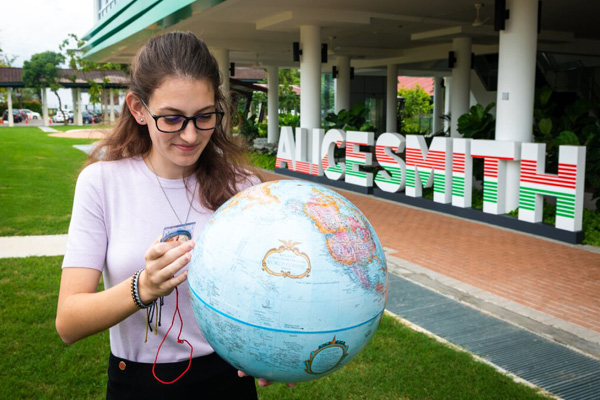
In Geography, your child will learn about their effects on the environment, both locally and globally and how to minimise the negative effects. This helps them to understand the inequalities that exist due to political and commercial decisions which will in turn enable them to become responsible citizens of the world - and perhaps leading the way in roles which can make a positive difference to our global environment.
They will learn about the contrasting patterns and change in natural and human environments, what causes them and most importantly it is the perfect subject to initiate curiosity and find out why. This enquiry approach helps to develop independent and reflective learners, recognise the benefits of collaboration and become increasingly creative thinkers. Their ability to read maps, use innovative technology and grasp the nuances and patterns of data makes them skillful and employable. Geography comes into its own when students apply their learning to the real world during fieldwork trips using the latest analytical equipment.
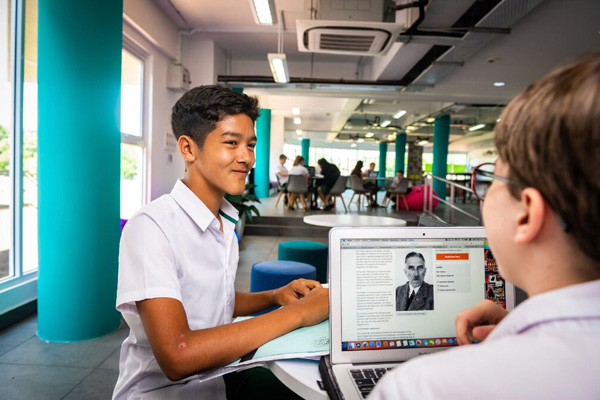
History covers a wide variety of subject knowledge, including the histories of Continental Europe, Asia, North America and the British Isles.
From Year 7, your child will take an enquiry-based approach to learning about; bias and exaggeration, truth and reliability, generalism and stereotype. They develop and improve abilities in researching, writing, presenting, debating, and above all critical thinking.
The key goal is to equip them to explore their own themes and lines of enquiry, contesting the views of some of the most well-known historians.
The critical learner bases their responses upon personal understandings and their wider cultural background; be it how to storm a castle or identifying the most significant factor that impacted upon the development of China in the 20th and 21st century?
Your child will participate in a variety of learning approaches, in small and large groups, as well as individually, utilising web based research, the latest literature and resources in our ever expanding library.
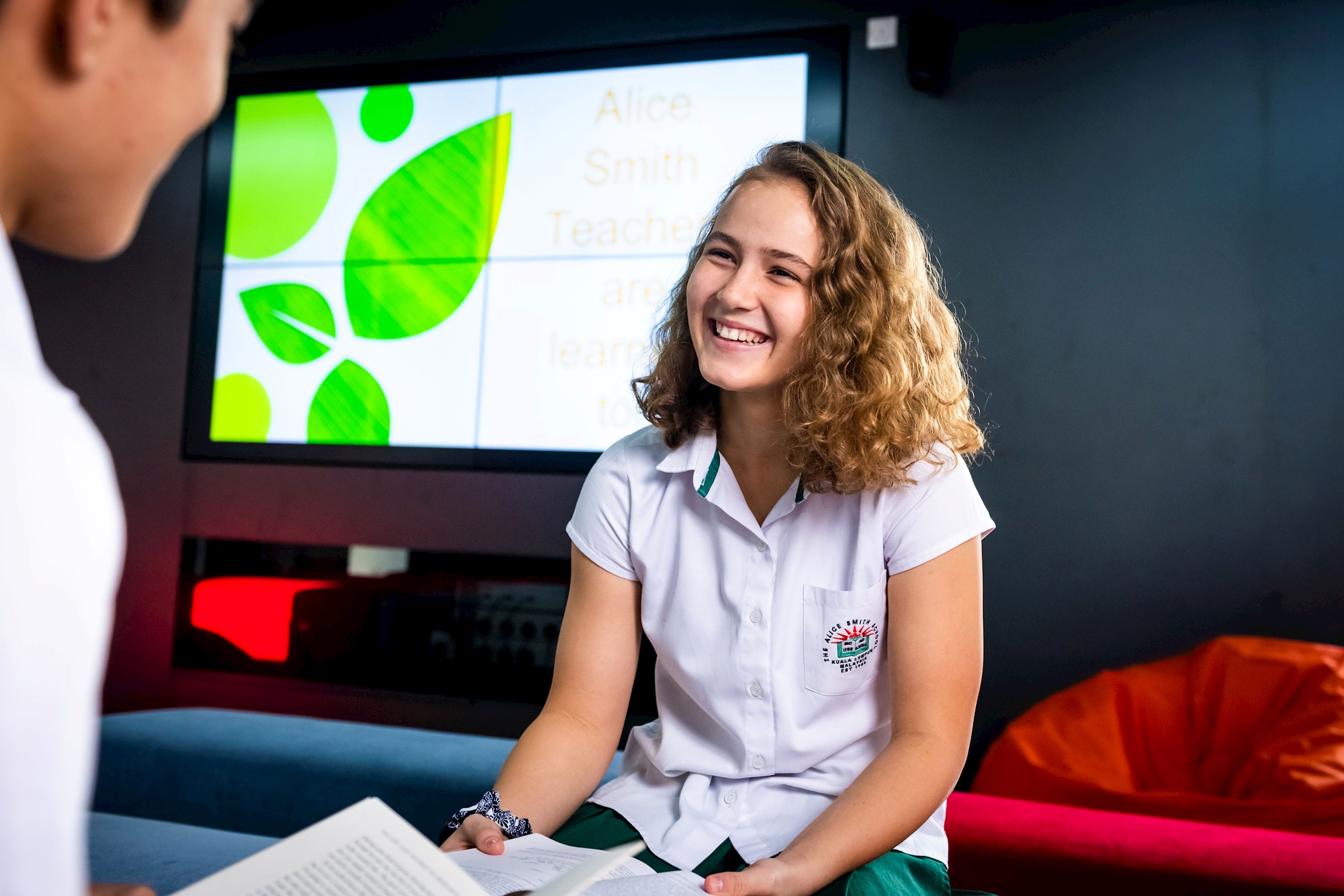
Your child will have a choice of four vibrant and relevant languages to choose from - Bahasa Malaysia, French, Mandarin and Spanish.
We believe it is important to foster a spirit of internationalism in the hearts and minds of our community, nurturing the ability to function effectively in an international context.
The learning of a foreign language helps us to achieve a greater understanding of what it is to be a citizen of the world, enjoying the exploration of other cultures and societies. It increases our own personal opportunities for work, entertainment and travel, expanding our awareness of the world as we know it, an environment in which the internet, increasing travel opportunities and global trade make this planet seem a much smaller place than in the past. Learning a new language helps us to understand that communication is a natural and essential part of our species.
With small class sizes and modern teaching space, our faculty has the resources to provide language courses from beginner to advanced, aiming to enable each student to progress through an appropriately challenging course, developing the skills of resilience and perseverance in long-term goal learning, an environment in which every child can achieve their full potential. From Years 7 to 9 (Key Stage 3), all students study two languages* and at least one of those chosen in Key stage 3 for (I)GCSE during Key Stage 4.
*Note: Students who are considered and assessed as native or near-native speakers of either Bahasa Malaysia and Mandarin by the respective department may have the opportunity to study either or both of these languages at a higher level than that offered on the standard 'foreign language' course.
Our Home Languages Programme provides an enrichment opportunity for native or near-native speakers of French, Spanish and languages other than those offered in the main curriculum. The programme aims to increase individual linguistic and cultural awareness via the help of external providers at an additional cost.
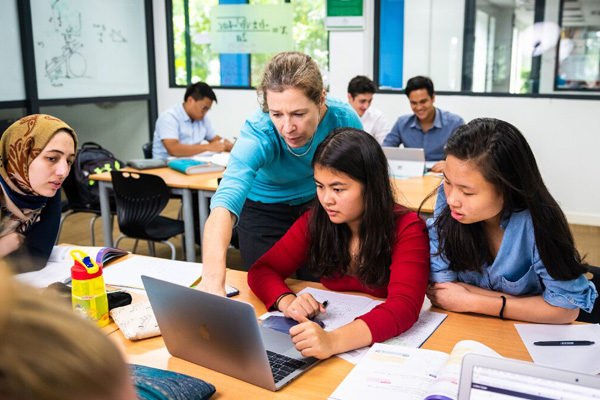
We encourage students to be critical thinkers which is reinforced in our Mathematics lessons through the key mathematical processes of representation, reasoning, analysis, interpretation, evaluation, communication and reflection. We emphasise the importance of exploring and assessing different techniques and strategies and being able to apply the most appropriate.
In Key Stage 3, your child will follow an extended Key Stage 3 UK Curriculum. Key Stage 4 follow the Edexcel (I)GCSE course or the CIE Additional Maths (I)GCSE, while at Key Stage 5, students follow the new Edexcel linear A Level course in Mathematics and Further Mathematics.
Mathematics is a mandatory subject at (I)GCSE level with an impressive 30% of students each year also opting to study an Additional Mathematics (I)GCSE course as well.
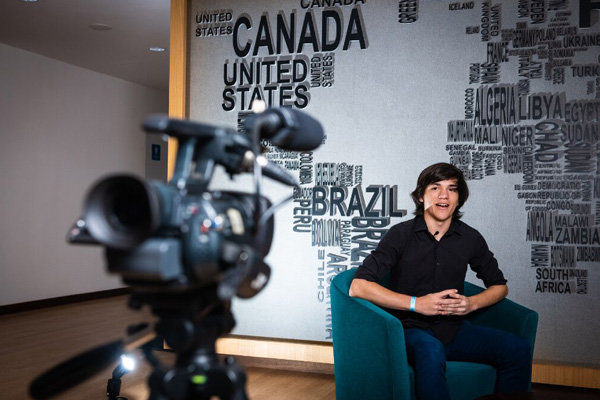
In addition to (I)GCSE and A Level, students can opt to take a Creating Media Elective in Year 9, the AQA GCSE Media Studies in Year 10 and the CIE A Level Media Studies, which continues to offer 50% coursework.
GCSE Media Studies will enable students to:
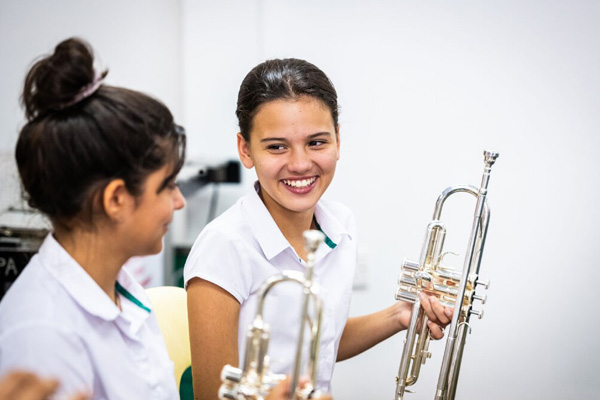
Albert Einstein famously wrote “I often think in music. I live my daydreams in music. I see my life in terms of music.” Music is a great source of inspiration and stimulus, as well as being a source of relaxation and well being. At Alice Smith, there are a huge variety of curricular and extra-curricular opportunities to both nurture and develop musical aptitude, including ECA (extra-curricular activities) instrumental ensembles and choirs, instrumental lessons, concerts and trips both locally and internationally.
Students begin their journey in Music through the Key Stage 3 Wind Band Programme, where they study fundamental musical concepts through learning a musical instrument in a group context. Our core principle of Music for All underpins our curriculum, with all students having the opportunity to benefit from the joy, discipline and challenges associated with learning a musical instrument.
Having developed fundamental performance skills and basic musicianship, students will explore the three core musical disciplines in Year 9, including performance, composition and musical appreciation. In addition, an elective weekly session for Year 9s provides the chance to learn to play rock instruments, explore music theatre and further develop their performance skills through an extended band programme.
At (I)GCSE, the course has been re-designed in consultation with leading musicians, businesses, educators, and universities. It is designed to develop students’ practical, and technical musicianship, and provide the opportunity to learn about a range of cultural, and historical musical genres. It also develops many transferable skills, which will complement academic success. Students will learn to perform, compose and appreciate different types of music, developing cultural, aesthetic and emotional awareness, and the ability to make music individually and as part of a group.
Further opportunities throughout the year include participation in festivals, workshops, stage productions and instrumental performances, all of which enhance our extra-curricular programme. Students are further encouraged to attend performances in and around Kuala Lumpur, and the department periodically organises outings and trips both locally and internationally to a variety of events.
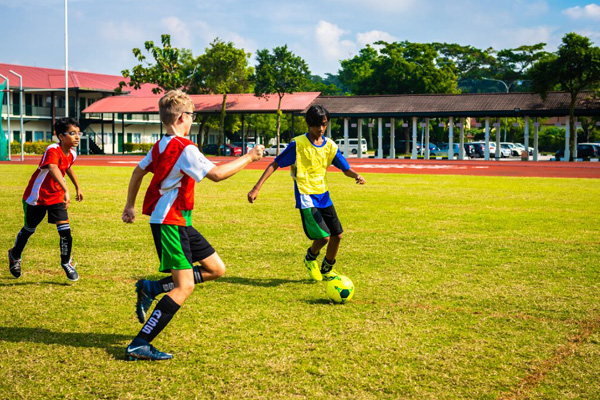
We trust in the concept of Sport for All and believe that regardless of a child’s previous experience, size or shape we can help them find a physical activity to enjoy and one which they will hold with them for a lifetime. We aim to build positive experiences around sport whilst also striving for excellence in performance. Our goal is that by the time they leave the Alice Smith School, your child will not only have an appreciation of sport but also understand the importance of physical activity on their health and well being.
Within PE lessons they will experience a wide range of activities, from individual activities like swimming, athletics, kayaking and fitness training through to traditional team games such as football, rugby, netball and basketball. In addition to this, we also offer courses at (I)GCSE and A Level.
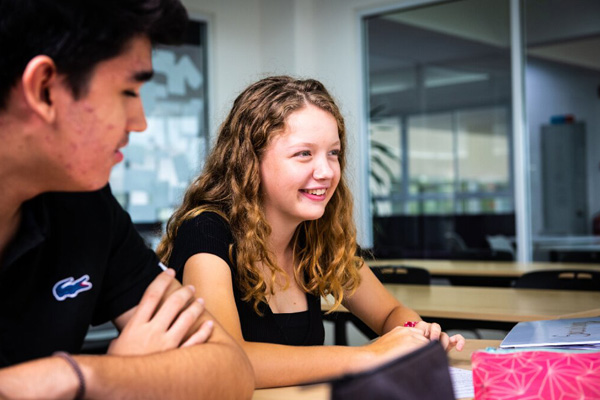
Psychology is offered at GCSE and A Level, where the focus over the four years of study is not simply about the mechanics and origin of human behaviour, it also covers maladaptive and deviant behaviour as well as how best to address and treat these issues.
Throughout both courses, we cover the many perspectives through which Psychology can be viewed and we constantly assess to what extent Biology and/ or Psychology determines and motivates behaviour. For example, the GCSE course is made up of topics such as Developmental Psychology and Neuropsychology where we examine the factors involved in brain development and learning, from parenting and peer influence to neural activity. For A Levels, we examine areas such as Schizophrenia and similarly, we investigate the etiology of the disorder, from the role that genetics play, biochemistry and even social explanations such as the role of the schizophrenogenic mother.
Both courses focus heavily on the scientific rigour of the subject and as such Research Methods, data analysis and evaluation of the methodology are key features. The main skill is then to be able to use and apply evidence and data to explain real life behaviour and events.
It is a versatile subject which links with many others, such as Biology, Maths, English, PE, Business Studies and Economics. And given the applied nature of the subject, it is also relevant to many careers and not just to the field of Psychology.
An example of this would be Law as the course seeks to understand memory in the context of Eyewitness Testimony and the legal ramifications associated with it (Cognition and Law). Psychology covers a vast array of topics; exploring themes such as the influence of nature and nurture, to how we process information to greater issues such as understanding how genocide can happen.
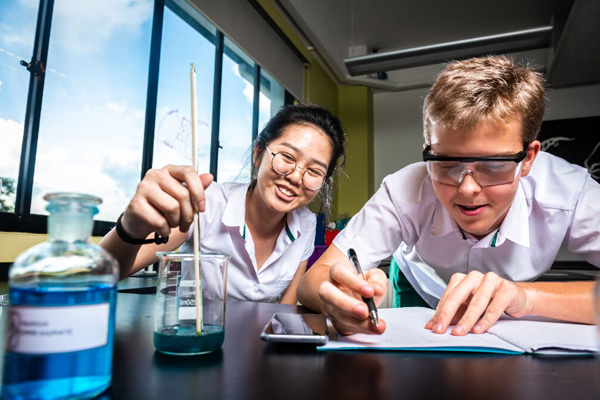
With an increasingly scientific and technological world, we need to ensure our children are equipped with the skills, knowledge and attitude to prepare them for life in the 21st Century. Science at Key Stage 3 develops curiosity, scientific knowledge and the skills with an approach that fosters an environment rich in questioning.
Studying Science at this level should be fun with a strong emphasis on practical work and developing your child’s interest in wanting to know more about the world around them. We aim to inspire and nurture your child’s interests in the three main areas of biology, chemistry and physics, and believe we do just that with a team of dedicated and passionate staff. Learning experiences aim to link scientific knowledge to investigative skills developing autonomy and interest.
Students are introduced to (I)GCSE material in Year 9 where they experience biology, chemistry and physics with specialist teachers. In Year 10, they have 7 lessons of Science per week (2 Biology, 2 Chemistry, 2 Physics and 1 skills based lesson). Based on Year 9 performance in Science, your child will be placed in groups which follow either the Double Award Science or Separate Sciences route when they enter Year 10.
The Edexcel (I)GCSE in Science (Double Award) takes approximately two-thirds of the subject content of each of the Edexcel (I)GCSE separate sciences (Biology, Chemistry and Physics), and combines them into an (I)GCSE in Science (Double Award) worth two (I)GCSEs. It is designed to be an interesting and inspiring modern specification. The same topics are covered in Separate Sciences, however, extension material is also covered in these specifications.
BIOLOGYBiology can be thought of as three levels:
The three levels described above, cover the whole spectrum of life and our continued study of it. As a department our aims are to encourage enthusiasm, enquiry, independent learning and to enhance a student’s understanding further through the use of technology. In the Sixth Form we offer AQA Biology A-Level. This course is very popular with the students and gives them an excellent basis for higher level study which can lead to degree courses such as Biological Sciences or Medicine. |
CHEMISTRYThe study of Chemistry allows students to understand behaviour of materials at a molecular level, thus dealing with abstract ideas which serve as explanations for chemical properties. We strive to give a practical context to all chemical learning and use modelling and examples of practical applications to make the subject relevant to students' lives and provide a link between concrete and abstract concepts. In the Sixth Form we offer the AQA A-Level Chemistry course in which students are taught by two experienced specialist teachers for a total of five lessons in Year 12 and six lessons per week in Year 13. Chemistry A Level is a popular subject and a requirement for university entry to medicine, chemical engineering, chemistry or medical sciences. The course has a strong practical emphasis and exposes our students to many opportunities for experiments using specialist laboratory equipment in dedicated Chemistry laboratories. |
PHYSICSPhysics is sometimes described as the study of matter, energy, motion and force and how they interrelate. Alternatively, it can be thought of as the study of the world around us and why it works in the way it does. This ranges from the tiny scale, such as the development of nano-robots, to the largest possible scale, the study of our universe. Studying Physics helps us to understand our increasingly complex world in which technology, culture, inequality and environmental calamity advance at a rapid pace. Qualifications in Physics can also open doors to a host of future careers, from engineering and research to the less obvious, such as business and finance. Amongst other attributes, studying Physics helps students develop a logical and numerate mind, problem solving skills, teamwork and flexibility. Physics is often perceived as a ‘difficult’ subject to study, however it is important to remember that it is one that has great rewards. For those with an ambition to be at the forefront of developing technologies and theories that describe our reality, it is necessary to study Physics at school and beyond. When studying Physics at Sixth Form, we offer the AQA A-Level specification. This course is very popular with the students and gives them an excellent basis for higher level study which can lead to degree courses such as Engineering, Architectures, Design, Aeronautics, Economics, Business or Medicine. |